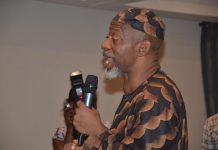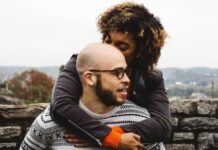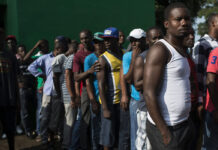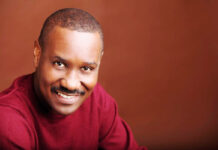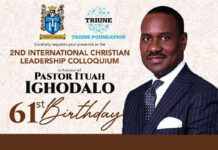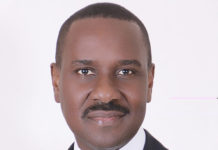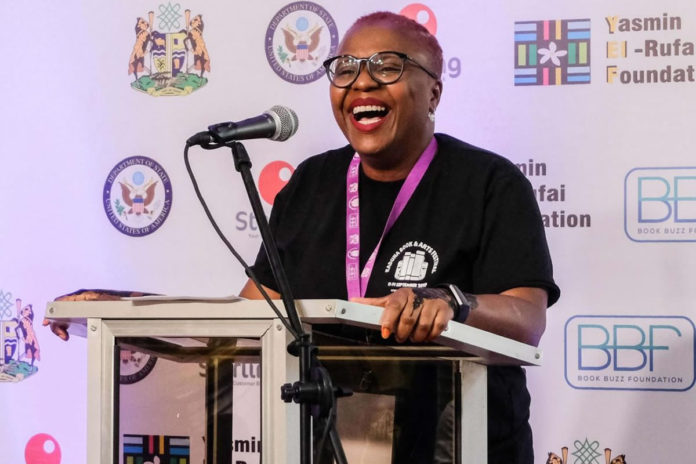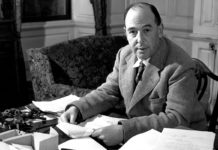Founder of The biggest book festival in Africa: Ake Festival
Lola Shoneyin is a cultural force to be reckoned with. The award-winning author of The Secret Wives of Baba Segi, poet and book publisher is also the founder of Ake Festival, Africa’s largest book festival.
Now in its seventh year, Ake Festival brings together the biggest names in the world of books from across Africa and the African diaspora. The festival takes place in Lagos, Nigeria over four days and showcases the best contemporary fiction, non-fiction, poetry and thinking from Africa. The festival also plays host to film screenings, theatre performances, poetry readings, art exhibitions and dance performances from Africa’s biggest names.
Last year’s festival included some of Africa’s most exciting contemporary authors, including Zimbabwe’s most important writer Tsitsi Dangarembga, Man Booker Prize 2019 winner, author Bernadine Evaristo, the Sunday Times bestselling author of My Sister the Serial Killer Oyinkan Braithwaite, award-winning Angolan author Jose Agualusa, and Reni Eddo-Lodge the internationally acclaimed author of Why I’m No Longer Talking To White People About Race.
 Born in 1974 in Ibadan, Nigeria, Lola Shoneyin went on to have a lengthy and successful career as an educator in Nigeria and the UK. She lives in Lagos and is now the director of Book Buzz Foundation Nigeria, a Non-Governmental organization whose main aims are to promote literacy through reading programmes for children and organizing cultural events such as Ake Arts and Books Festival and Kaduna Arts Festival.
Born in 1974 in Ibadan, Nigeria, Lola Shoneyin went on to have a lengthy and successful career as an educator in Nigeria and the UK. She lives in Lagos and is now the director of Book Buzz Foundation Nigeria, a Non-Governmental organization whose main aims are to promote literacy through reading programmes for children and organizing cultural events such as Ake Arts and Books Festival and Kaduna Arts Festival.
One of the most influential women in Nigeria, Lola is also the founder of publishing imprint, Ouida Books, and Ouida Bookshop, one of the largest bookshops in Nigeria.
Lola Shoneyin talks about her journey starting the Ake Festival, the importance of supporting the younger generation and her life lessons along the way.
The Ake Arts and Literary Festival is now in its 7th year, what inspired you to start the festival?
I felt there was a need for African and Black authors to have open and honest conversations about the experience of Blackness. About how they saw the world but to an audience that almost automatically and instinctively had context.
As a writer myself, when the The Secret Wives of Baba Segi came out, I would travel far and wide doing interviews and talks to mainly white audiences. Sometimes you get these questions about the oppressive elements of your culture. I often worried there wouldn’t be time to provide context and also discuss the positive sides of the culture.
I wanted to curate a festival where the audience would be largely Black. When artists, writers and creatives come to Ake and speak to the audience they don’t need to explain the context, they just get it. This allows them to get into the real nitty gritty of what their work of art means, what their hopes are and about what that piece of art can do in the world.
It also irritated me that Nigeria, a country of almost 200 million people, couldn’t put together a world-class literary festival. I’d been involved in literary initiatives from an early age and started a publishing house at twenty-three. So, I had the tools to do this. l worked to make it happen.
Can you tell us more about the process of establishing a festival on this scale? i.e. what support, or not have you had?
The process was really interesting for me. I was at a book festival in Johannesburg and one of the guests there was Nick Barley who runs the Edinburgh International Book Festival. I asked him about the financial side of running a literary event. It’s expensive to run a festival but in the UK, tickets for a literary festival cost up to £650. At Ake Festival you get 50 events for £24. I had to look at financing the event from a Nigerian perspective.
Another part of the process is about keeping your eyes open about what Black people are writing and creating around the world and the African continent throughout the year. I keep in touch with publishers and agents and create a list and book them for the festival as early as possible.
What would you say are the biggest challenges you have faced along the way?
Fundraising has always been a challenge. For five years, we have relied on various international funding sources such as the World Bank and the British Council.
But, in the last two years our biggest funder, and now partner is Sterling Bank in Nigeria. That for me has been the biggest shift. People are now waking up to the importance and value of culture. Sterling Bank really embraced what we are doing and I’m so happy that they have stuck with me on this journey.
Tell us three life lessons you have learned on your journey to create the Ake festival?
Learn how to delegate and invest in your team. I have a very young team (only one is over twenty-six). Value young people and think about how you can help them improve themselves. If you support people, they will plough that knowledge back into your organisation. I still have people working with me who have been with me from the very beginning.
Master quickly how to turn the misfortunes into blessings. When you are organising a festival of this scale, there are so many moving parts at any given time. When there is a problem with a link in the chain you have to be able to think on your feet and solve the problem immediately
Identify as a human being what you hold dear and what’s important to you. I started this type of work in my early twenties. I always knew what I wanted to do, but over the years the dream has grown. So, when you have a dream, leave space to for it to grow, because it might grow in directions you didn’t imagine to begin with.
The theme for the festival last year was Black Bodies | Grey Matter, can you tell us how you came up with this theme?
The idea for the theme came about through pure teamwork. We knew we wanted to talk about the experience of the Black body. The Black body has been spoken about a lot, particularly in America where it is often ‘othered’.
On the African continent we don’t think about the Black body enough. When you look at government policy and leadership in many African countries it’s almost as if human life has very little value.
Let’s discuss the black body as an entity and what it has been through from individual experiences and as a collective experience in different African countries.
We also wanted to talk about mental health as it’s not getting enough attention in Africa. How do you hope the festival can change attitudes towards mental health issues in Africa?
Africans need to have more conversations about mental health. You will see people with serious mental issues walking the highways naked. This is someone’s child, so what’s gone wrong? How do we change the way we think about mental health? Everything about mental health is shrouded in shame. Why are we ashamed of something we have no control over?
At Ake Festival, we pride ourselves on being able to say the unsayable and being able to talk about taboo topics.
You are passionate about supporting young people and the responsibility we have towards the next generation? Can you tell us more about your vision?
The younger generation wants to be heard. It is important to me that they have a voice. If they are not allowed to speak their mind and bottle things up, we are going to end up with an unwieldy rebellion on our hands.
 The older generation needs to understand the impact technology has on the younger generation. How it influences their thinking and discourse. They live in a world that is dominated by technology; they want to express themselves. The youth populations across Africa are huge. So, you have all of these young Africans who are in desperate need of decent leadership. The older generation has a responsibility to set a good example.
The older generation needs to understand the impact technology has on the younger generation. How it influences their thinking and discourse. They live in a world that is dominated by technology; they want to express themselves. The youth populations across Africa are huge. So, you have all of these young Africans who are in desperate need of decent leadership. The older generation has a responsibility to set a good example.
What do you hope attendees will take away from this year’s festival?
They can expect a total overload of information and ideas. It’s an opportunity for people to openly talk about their ideas, and for other people to take those ideas and create even more ideas. It’s about promoting creativity on the African continent and of course to also buy lots of books!
You spend a lot of time here in the UK, any plans to recreate Ake festival hear in the UK?
I would love to. I know there are already some UK Black arts festivals led by the Royal African Society and JJ Bola. What makes Ake Festival so unique is that Black writers and creatives from all over the world have an overwhelming sense of ‘coming home’. Having the festival on African soil is a huge part of the whole cultural journey for many people. It’s a wonderful way for those who have never been to Africa to become acquainted with the continent through its books, art, film and people.
We loved your bestselling debut novel, the secret lives of Baba Segi’s wives. Any plans for a sequel or another book?
Absolutely not! (laughs). Those characters stopped living in my head a long time ago. I’ve been working on a new novel for a few years now, but it’s hard to find the time to finish it with all of the other stuff I do. These days, I find that I get much more excited about promoting the works of other writers.
This article was written by Traci Aina and was first published on www.melanmag.com



